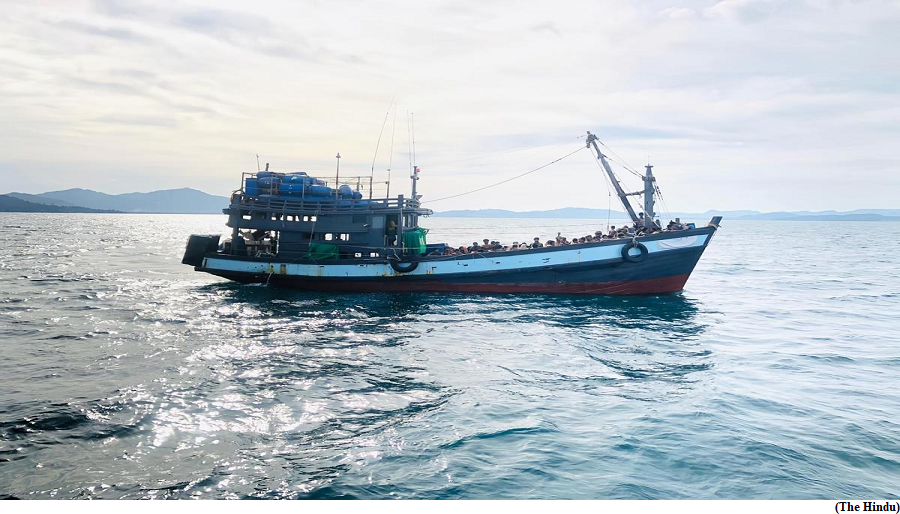Refugees as assets to their new countries (GS Paper 2, International Relation)

Context:
- The issue refugees is discussed on the occasion of World Refugee Day, which is commemorated on June 20th each year.
- It is a day to promote solidarity between communities, and, most importantly, to reflect on the importance of welcoming refugees and displaced persons into our communities.
- The article specifically mentions the global challenges posed by ongoing wars in Ukraine, Myanmar, Sudan, as well as protracted situations in Afghanistan and Somalia.
Challenges of Displacement:
- Global conflicts which include the ongoing wars in Ukraine, Myanmar and Sudan among others, and the protracted situations in Afghanistan, and Somalia present an unprecedented challenge.
- Sadly, South and Southeast Asia are not immune to the challenges of displacement. India is home to some 250,000 forcibly displaced persons, with women and children constituting half of that population. India continues to graciously host and assist refugees and asylum-seekers within its territory.
- The Government of India has shown steadfast support in generously hosting refugees throughout its history.
Success stories of Refugees:
- A young Afghan refugee, sought refuge in India fearing persecution in his home country. After pursuing his education through distance learning programme from the National Institute of Open Schooling, he is now teaching refugee and local children and aspires to serve the community that uplifted him from being “a nobody” to a valuable member of the society.
- For refugee youth, it is not just a matter of talent; it is a matter of prospects. They want opportunities, not handouts. They wish to be self-reliant and are eager to use their talents and passions to contribute to the communities hosting them.
- With career support and strong will, Taslima, a stateless person and twice displaced Rohingya woman in India, could fulfil her dream of being educated and is now a role model for other girls in her community.
Dismantle the barriers:
- Refugees and asylum seekers encounter a myriad of obstacles, such as legal recognition and challenges in obtaining government-issued documents, which hinder their access to essential services, including financial support and health care.
- It is important to dismantle these barriers and ensure that they are afforded equal opportunities in employment, education, housing, and health care.
- The efforts in creating an inclusive society must cater to the unique needs of refugee youth. To ensure that truly no one is left behind, there is need to engage with and include youth, especially refugee youth, in the realisation of the Sustainable Development Agenda.
- Addressing the rising number of the forcibly displaced is an urgent moral imperative that demands collective action.
Global Compact on Refugees:
- The Global Compact on Refugees acknowledges the magnitude of the displacement crisis and calls for solidarity through a whole of society approach.
- It is built on the understanding that the responsibility towards the forcibly displaced is not limited to governments but extends to each one of us including individuals, the private sector, non-government organisations and community-based organisations.
- It also recognises that the Global South is disproportionately affected and that host communities need assistance.
- The Global Compact on Refugees strives to enhance the international response, support host countries, promote self-reliance, and explore long-term solutions such as resettlement and safe returns.
India’s vision:
- The principle of equitable burden-sharing, where all stakeholders take responsibility for supporting refugees and their host communities should be encouraged.
- India can invite individuals, the private sector and governments to do their part in supporting youth from refugee and host communities.
- Together, it can be truly ensured the Government of India’s vision of ‘Viksit Yuva Viksit Bharat’ is realised.
Way Forward:
- Policymakers and practitioners should stop talking about refugees as a “burden” to be shared, but rather as an opportunity to be welcomed. With a suitable upfront investment and wise policies, welcoming refugees can yield substantial economic dividends.


